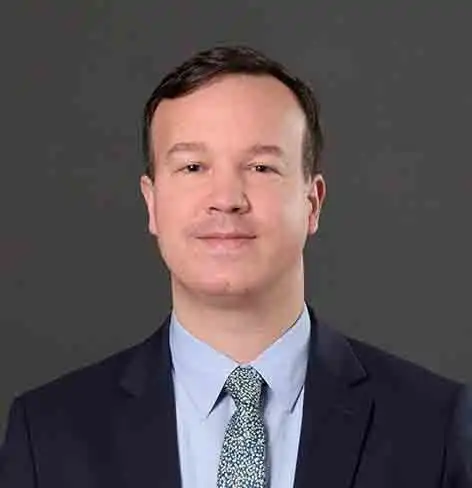Home>Scott Wilson, an uncommon path for commercial litigators and white collar defense attorneys at major U.S. law firms [february 2020]
09.02.2020
Scott Wilson, an uncommon path for commercial litigators and white collar defense attorneys at major U.S. law firms [february 2020]
When Scott Wilson matriculated into the joint LLM program between Columbia University and Sciences Po he had a clear idea of what he wanted to do. Even as an undergraduate at Harvard, he was an aspiring lawyer with an eye toward working internationally.
“I was anticipating a career where I was working on disputes across borders,” he said.
Today Wilson does just that at the global law firm DLA Piper, where he works with U.S. and foreign companies to provide advice on a range of cross-border issues from corruption investigations to commercial disputes. In December he explained to the New York Law Journal what those cases look like, outlining “a hypothetical situation where federal prosecutors send a subpoena to a multinational company about a transaction in a South American country, leading to media coverage that triggers public regulatory proceedings or a parliamentary probe in that country.”
Wilson followed a path uncommon for commercial litigators and white collar defense attorneys at major U.S. law firms. It is unusual to find an American lawyer who also has a law degree from a country like France that does not have a common law legal system like the US and the UK. But a lawyer’s ability to advise clients on matters that involve different legal systems around the world is an increasingly sought-after skillset. Since Wilson long had a clear understanding of his international aspirations in the field of law, Sciences Po’s degree offered a perfect fit.
Before college, the Tennessean’s only links to France came in the form of his high school French courses and a family vacation to Paris. But at Harvard, he studied under the late Stanley Hoffmann, renowned Harvard professor and alumnus of Sciences Po. Hoffmann was teaching a graduate seminar on the literature of World War Two and the Holocaust. Wilson describes this experience—studying with Hoffmann, a formidable intellect who twice fled the Nazis—as formative.
Hoffmann also connected him with other faculty and provided him advice on his thesis. The professor’s influence was part of what led him to Sciences Po.
Wilson recalls visiting the bookstore across 27 rue St Guillaume on his first day of classes and browsing the publications on display.
“And there was Stanley’s face on the cover of a bulletin, welcoming me to the 7th arrondissement,” he said.
He also learned that Sciences Po’s reputation for excellence was well supported by some of the best faculty in their fields.
Wilson waxes reminiscent about his antitrust law course, taught by the Honorable Guy Canivet, then the president of France’s Court of Cassation.
Judge Canivet was helpful when Wilson sought to conduct original research on the role of French judges at the Nuremberg Trials. This required getting access to the legal library at the Court of Cassation, which is usually closed to the public. Judge Canivet authorized it.
The first time that Wilson visited the library he was surprised to find that the court clerk who prepared his access card wore a formal coat with tails. His experience at the court prompts a broader reflection on his time at Sciences Po.
“I remember feeling like a kid in a candy shop and feeling that we were getting access to the absolute best that the French legal system had to offer to students,” Wilson said.
